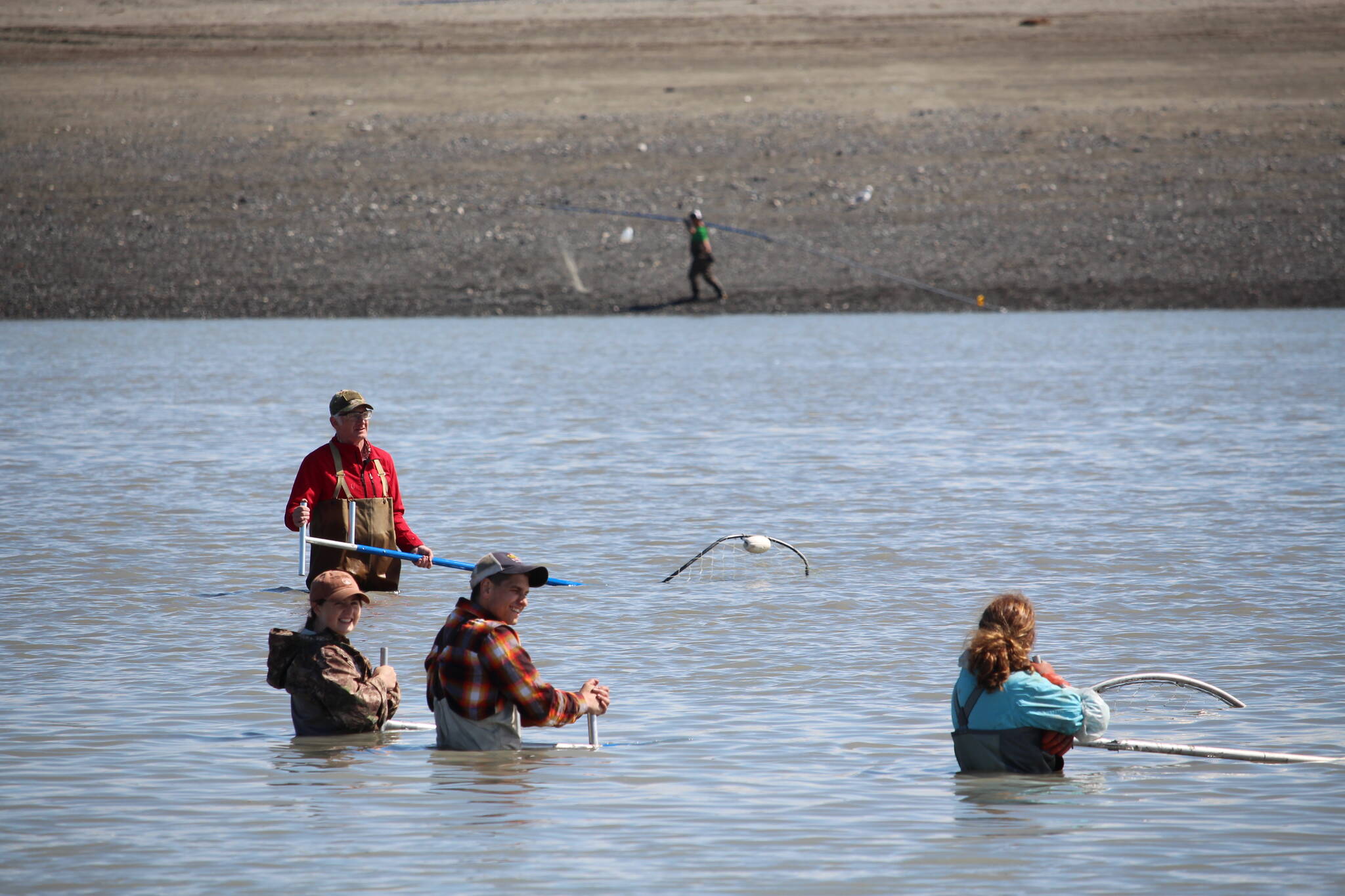The Alaska Board of Fisheries will meet this weekend in Anchorage to discuss proposed changes to fishing regulations affecting the state.
Over four days, from March 10 through March 13, the board will meet at the Egan Civic & Convention Center to discuss 19 proposals, which include a variety of equipment regulation changes, changes to policies, registrations, emergency order authority and the invasive species list.
Since the start of the year, local Fish and Game Advisory Councils for Kenai/Soldotna, Homer and Cooper Landing have been meeting to discuss their official recommendations on the proposals to the Board of Fisheries and the Board of Game, who meet the following week.
The Kenai/Soldotna group has placed their support in proposals that simplify registration decal requirements for guide vessels in the Kenai River Special Management Area and for an update to the state’s invasive species list.
Cooper Landing’s council supports the decal changes and invasive species changes as well as an extension of Fish and Game emergency order authority to allow restrictions in contaminated water.
The Homer advisory council supports the definition of escape mechanisms for collapsible groundfish pots, as well as the use of spearguns to take fish and the prohibition of felt-soled footwear in freshwater personal use.
The Homer council also endorsed four of a set of five proposals that each restrict or prohibit the use of guides in personal use fisheries. Those proposals were opposed by the Kenai and Cooper Landing groups.
The Proposals, 163-167, of which all but 164 was endorsed by the Homer group, include a direct prohibition on guiding in personal use fisheries, prohibit compensation for guides in the subsistence fisheries, establish new reporting requirements for guides, establish statewide bag limits for personal use fisheries and require in season reporting for subsistence and personal use fisheries.
Those five proposals were the focus of every public comment submitted to the board from individuals who identified themselves as residents of the Kenai Peninsula. Of 563 public comments received, 65 came from residents of Kenai, Soldotna, Sterling, Cooper Landing, Kasilof, Anchor Point and Homer. Each discussed proposals 163-167.
Only three of those public comments supported the proposals, one from Kenai and two from Homer. The 62 others opposed the proposals.
The Kenai/Soldotna Advisory Council discussed the proposals in their Feb. 16 meeting. They said the use of guides in personal use fisheries was an accessibility issue. They said there wasn’t a reason to prohibit or limit the use of guides to residents who do not own a boat or who shouldn’t be operating one.
The group said that especially because subsistence and personal use fisheries are open only to Alaska residents, they opposed any restrictions on their ability to make use of the fisheries.
“Prohibiting guides takes away their opportunity,” member Jerry Strieby said.
That reasoning is repeated in many of the public comments compiled by the board. The commenters say that guides provide value in personal use fisheries to improve accessibility for residents — particularly those with disabilities.
Alex Douthit, a Kenai City Council member and fishing guide, writes in his comment that he started guiding personal use anglers in 2012.
“Residents loved having a safe, knowledgeable way to get their personal use fish,” he writes.
The Homer Advisory Council’s notes on their support say that “the idea of guiding a personal use fishery is inconsistent with the purpose and reasons for having this fishery.”
The group says that there is value to allowing resident-only transporters to allow for accessible use, but point to the compensation for guide services specifically as being “inconsistent” with the fishery.
Proposals 166 and 167 are the establishment of a statewide bag limit and the requirement of inseason reporting for subsistence and personal use harvest, respectively. The Homer council approved 166 unanimously, saying there was value in prohibiting “double-dipping.”
Proposal 167 split the group, with seven in favor, six opposed. Those opposed said that the time limit of five days for the reporting of harvest would be “difficult to impossible” in remote locations without sufficient coverage.
The Board of Game is set to hear public testimony on Friday — rolling into Saturday if necessary — then will perform committee work and deliberations on the proposals in four groups.
On Saturday, work will be done on the Nushagak River King Salmon Action Plan as well as the first six proposals, centered on gear, methods and means.
Deliberations will be held Sunday morning, followed by work on the five proposals on commercial fishery registration, closed waters and groundfish policy. The last group, also scheduled for Sunday, includes the eight proposals on sport fisheries, personal use and subsistence fishery guiding, personal use fishery limits and invasive species.
Those deliberations are scheduled for Monday morning.
The group will adjourn when those deliberations are completed and after “miscellaneous business,” scheduled for Tuesday.
The Board of Fisheries meets on a three-year cycle, with statewide proposals being discussed each year and regional proposals rotating. Proposals for the Cook Inlet area will be considered next year. Proposals are being accepted through the Department of Fish and Game website until April 10.
For the Board of Fisheries agenda, the full text of all 19 proposals, and the comments from the Advisory Councils and public, visit adfg.alaska.gov.
Reach reporter Jake Dye at jacob.dye@peninsulaclarion.com.

